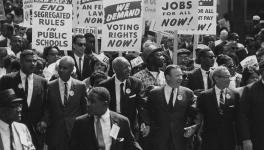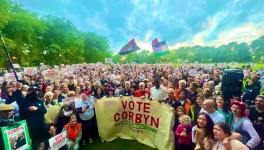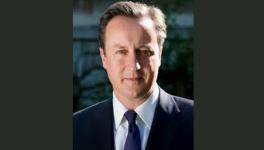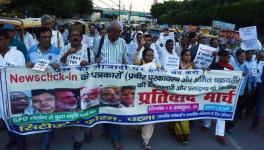Afua Hirsch: Why Anti-racism Work is Under Threat in the UK
Afua Hirsch's award-winning books include 'Brit(ish): On Race, Identity and Belonging' (2018)
Afua Hirsch first worked as a lawyer before turning to journalism. Among other assignments, she was a correspondent for the English daily The Guardian based in the Ghanaian capital, Accra. Hirsch, whose mother is Ghanaian and father is British, has written extensively on the history of migrant Britons and published a book entitled "Brit(ish): On Race, Identity and Belonging" in 2018. Deutsche Welle interviewed her in June during the Global Media Forum in Bonn.
When it comes to People of Color in the UK, what is the status today?
I think that in some ways we've made progress. I think that the conversation is more visible and more people are beginning to self-educate about how they work. But in some ways we've also gone backwards because on the right, we have an unprecedented political hostility towards racial equity. And we're actually seeing the demonization of writers, thinkers and activists who do anti-racism work.
And so, it's actually quite a frightening climate. If you want to just report and discuss facts about racial injustice, you face personal persecution in the UK, which is something I don't think I could have imagined happening before in my lifetime.
Have you faced any persecution personally or could you mention some examples?
A memo got leaked from the British government last year saying that I was banned from Whitehall; I was banned from working with government or civil servants because I'm an "extremist," because of the work I do on anti-racism.

Renowned for her work on racism and identity, Afua Hirsh was recently a panelist at DW's Global Media Forum
And the memo that got leaked also named other prominent anti-racist thinkers, like David Olusoga and Priyamvada Gopal.
There have been statements made by government ministers questioning whether critical race theory should be banned and people who write books about anti-racism should be criminalized.
We have a Minister for Women and Equalities who said that she doesn't believe in feminism or racism.
So yeah, that that is really serious. In the past, regardless of your political orientation, I think there was at least pressure to be seen to be taking these issues seriously.
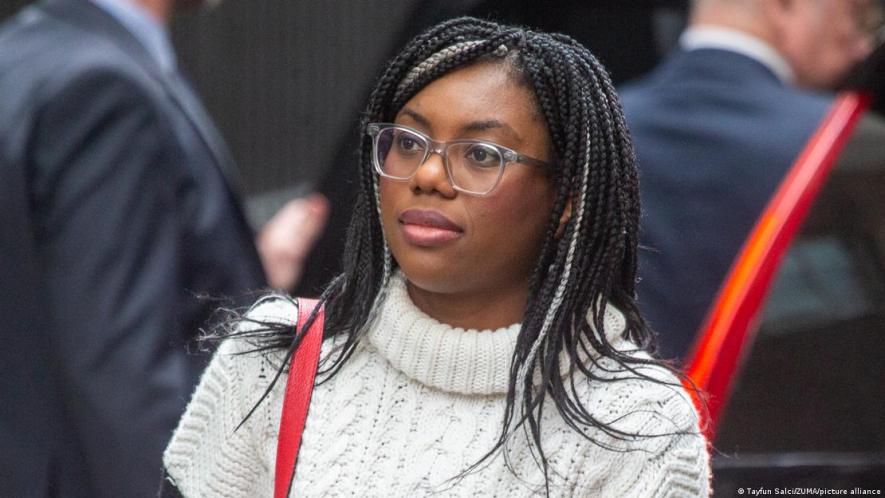
Minister for Women and Equalities Kemi Badenoch has been described as 'darling of the right' for her 'anti-woke' stance
You would expect that things would have changed, especially with the UK having a prime minister who's not white.
We do actually have more People of Color in government than in the past, but they're all people who have used their own story as someone from an ethnic minority background to disown anti-racism work and to undermine the fact that we have racial inequality.
So I think the message that you get now, if you look at Britain, is, if you want to be successful as a minority person, you have to publicly disown your own community in their struggle. And I actually think that's a backwards step.
So, have they become the establishment, in that sense?
And they're willing to use their own heritage as a political weapon to say what they think white voters want to hear.
How does that work?
I think because we're living in a very populist climate in the UK, there's this sense that voters want to hear politicians being racist or xenophobic against immigrants, against the battle for racial equality. And so I think a lot of what they're saying is not necessarily what they believe, but what they think will be electorally successful.
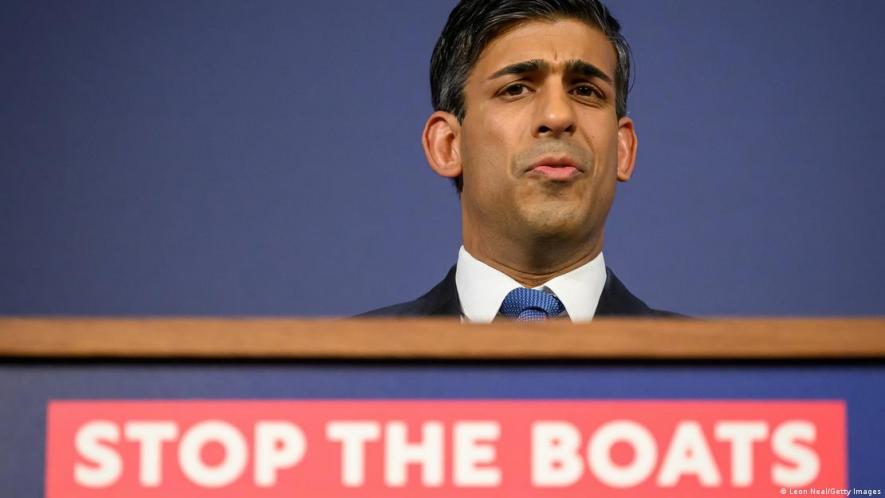
Prime Minister Rishi Sunak's 'Stop the Boats' bill aims to crack down on asylum seekers
And I think that's their interpretation of the message of Brexit. I think the message of Brexit is that there are a lot of constituencies in the UK that have a legitimate grievance because they've been left behind. There has not been a plan for their communities after deindustrialization, and the benefits from globalization have not been distributed equally.
Those are problems that no one political generation can solve and it's very difficult to run an election pledging answers to those big existential problems. So what politicians are doing is they are taking the easy way out and blaming those grievances on immigration, on multiculturalism, hoping that if they blame visible others, it will give the appearance that they have some kind of answer to these much bigger, much more deeply rooted problems.
How is this all playing into the cost of living crisis, especially for People of Color who are in the lower middle class in the UK?
I think that it has the potential to really expose the dishonesty of this political agenda because the reality is that, you know, Brexit didn't make Britain more prosperous. It didn't create more jobs. It didn't protect Britain from a global cost of living crisis. If anything, it made Britain more vulnerable to all of these problems.
And actually, the departure of many immigrant communities has actually harmed their economy in so many ways because now the service sector, the agricultural sector is struggling to find people to do jobs. I think that it's actually making the electorate smarter and better equipped to interrogate the idea that there are quick fixes to any of these solutions.
Globally, authors of color are gaining in visibility. Do you think that it's just in name or has that actually affected how you are being seen as an author from a non-white background?
I think it's a fact that authors, academics and filmmakers with Black heritage have become more visible. That's partly just the backlog of having been squeezed out of having a platform and having no opportunity for so long.
I also think it does reflect the fact that people do have access to more information, and they are able to find the stories that they want. It is becoming more of a marketplace, whereas in the past, you know, the information we had access to was so heavily controlled by white gatekeepers.
If you take something like the death of the Queen, the British media would have been able to police the media response to that, whereas now we hear voices from all over the world, from India, from Australia, from Canada. People who have very personal memories of atrocities that were committed in the name of the British Crown were able to speak about their experience and the British media could no longer control all the stories that were being told globally about what that institution meant. And I think in a democracy, we have to celebrate that.
Edited by: Elizabeth Grenier
Get the latest reports & analysis with people's perspective on Protests, movements & deep analytical videos, discussions of the current affairs in your Telegram app. Subscribe to NewsClick's Telegram channel & get Real-Time updates on stories, as they get published on our website.









